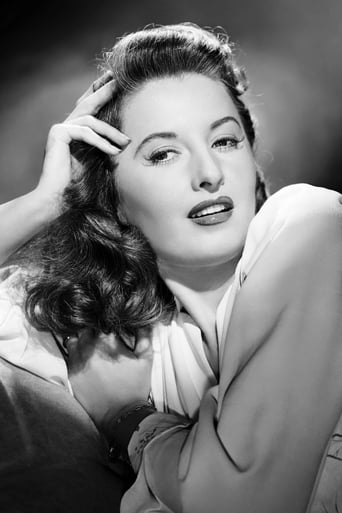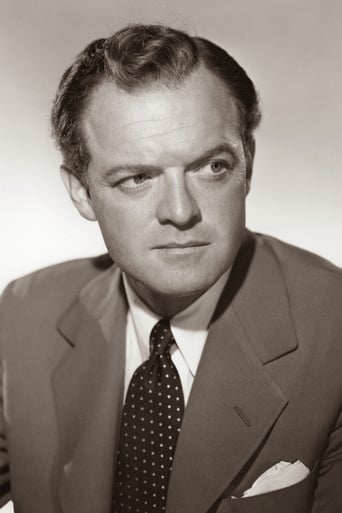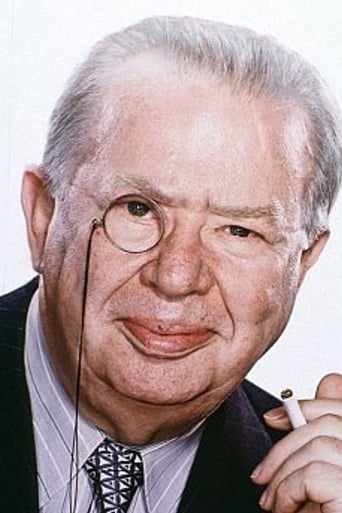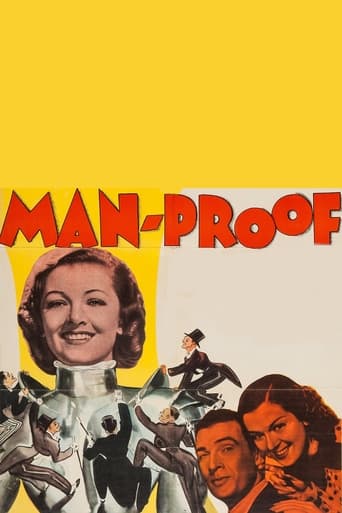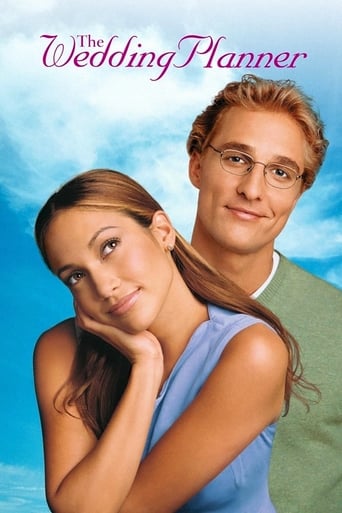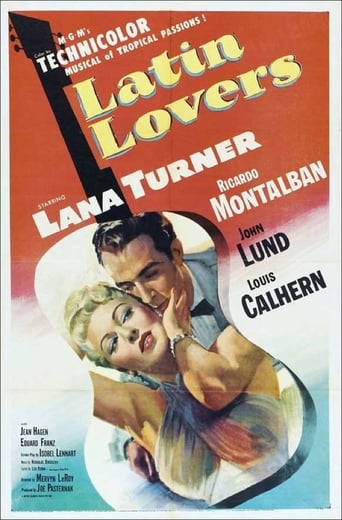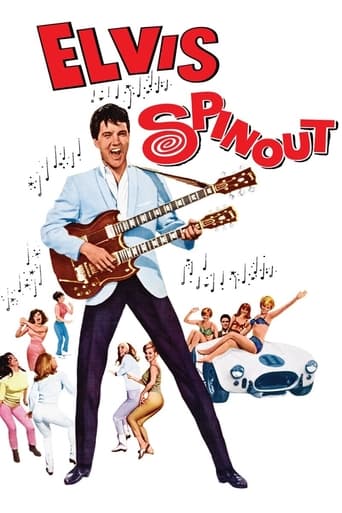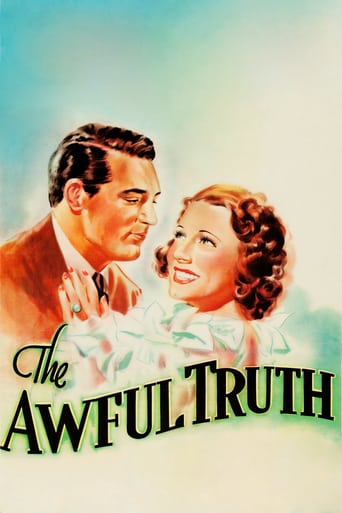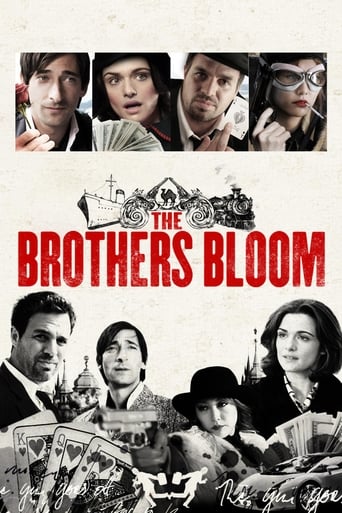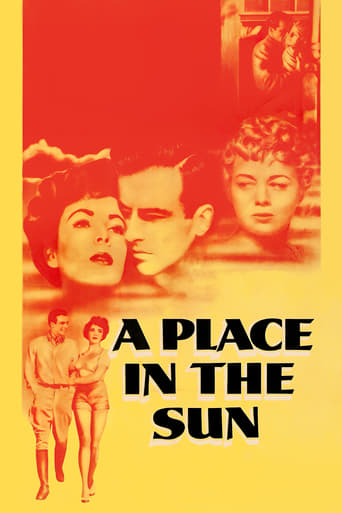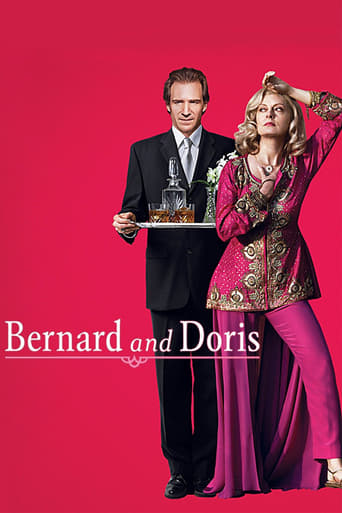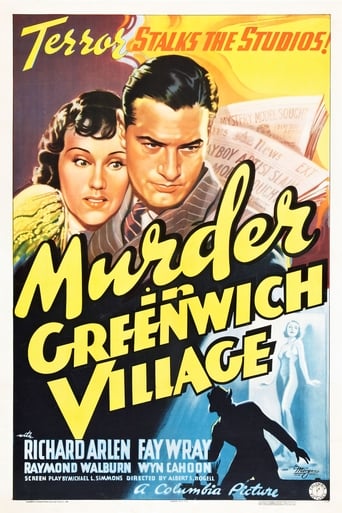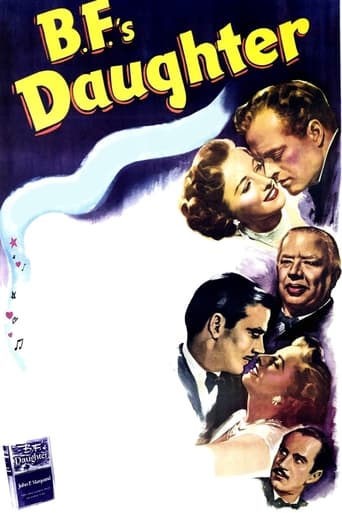
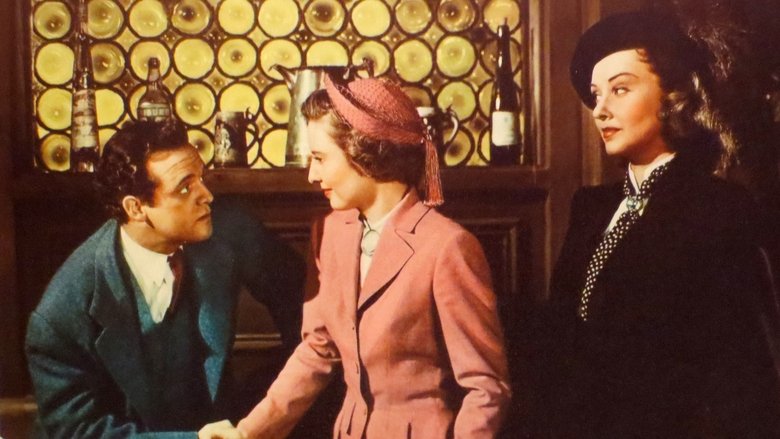
B.F.'s Daughter (1948)
Wealthy Polly Fulton marries a progressive scholar whose attitudes toward capitalism and acquired wealth puts their marriage in jeopardy.
Watch Trailer
Cast
Similar titles
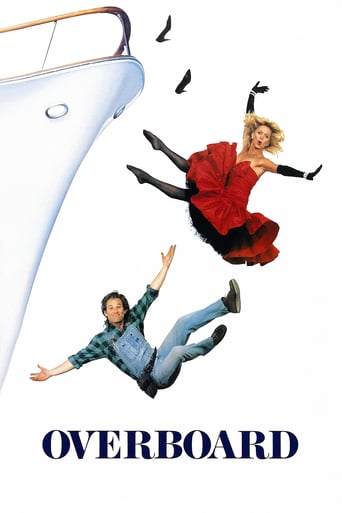
Reviews
Overrated
Let's be realistic.
As Good As It Gets
Excellent characters with emotional depth. My wife, daughter and granddaughter all enjoyed it...and me, too! Very good movie! You won't be disappointed.
Charles Coburn plays the self made man of industry (B.F. Fulton) who has one child, Polly (Barbara Stanwyck), who is not just his daughter but a confidante and even a protégé of sorts about business matters. Meanwhile, B.F.'s wife (Spring Byington) is pretty much wasted here as she spends the entire film knitting.Polly is in love with an attorney, Robert S. Tasmin III, who refuses to marry Polly until he works his way up to assistant partner. Meanwhile, while Bob is up on that corporate ladder, down on the ground Polly meets her friend Apples (Margaret Lindsay) for a drink in a nearby tavern. Educator and lecturer Tom Brett (Van Heflin), zeroes in on Polly and they start talking politics. Polly seems to fall for Tom because of his Bohemian lifestyle and his stylish rudeness that she never encountered in her circles. Within 24 hours they are married. Brett's good buddy is a leftist radio host, Martin Ainsley (Keenan Wynn), who is always talking down rich people in general and B.F. in particular.Yet it is B.F. who comes across as the good guy. He doesn't try to interfere in his daughter's life and seems to genuinely care about his employees. So Polly and Tom start out marriage in a log cabin in Minnesota where Tom is working on his book. Meanwhile, Polly figures - "How can a little financial boost hurt?". She goes to somebody running a nationwide lecture tour and promises to cover his losses if he will hire her husband. Tom knows nothing of this, but once he is out on the circuit his ideas are a big hit. Ultimately, his books and lectures become very profitable and Brett becomes a rich guy too, a member of FDR's brain trust.Will success change Tom Brett? Was Ainsley a phony in the first place? Will Tom and Polly's marriage work out? Watch and find out.I only gave this a six because the adapted screenplay was a bit of a sprawling saga for just under two hours. This film was supposed to be set from the Great Depression years into the midst of WWII, and it was adapted from a novel written in 1946. B.F. and Polly, symbols of the wealthy class, are showcased as the real people here, and Brett and Ainsley ultimately are the stuffy and unbending types with the same character flaws they have been ascribing to the rich.One big negative I would give it - It doesn't try at all to dress people in the clothes of the period. Stanwyck is wearing the same kind of tailored suit that was popular in 1948 at the beginning of the film - which was the early 1930's, and Heflin, who is supposed to be poor, wears a wrinkled suit from the late 1940s himself.The script is a bit of a muddle - it does not follow the novel, especially the last half , but I'd watch it for the acting and for an object lesson in the production code really REALLY trying to make rich people look like misunderstood benefactors, especially just prior to the red scares. It's definitely NOT boring.
Barbara Stanwyck is "B.F.'s Daughter" in this 1948 film, with Charles Coburn as B.F., Van Heflin, Keenan Wynn, and Spring Byington.This film is based on a controversial novel with a different, more political emphasis and turned into a romantic soap opera by MGM.Stanwyck plays Pauline, from a wealthy family, who is engaged to marry Bob Tasmin (Richard Hart), someone she's known for years. However, she meets a good-looking and interesting left-wing economy professor, author, and lecturer, Thomas Brett (Heflin) and falls in love with him. They get married right away and move to a cabin in Minnesota. Polly, or Paul as she is called, takes an allowance from her father with Tom's blessing - however, he's made it clear he's not interested in B.F.'s money or B.F.'s interest in his career.Unbeknownst to him, Pauline uses her father's connections to get Tom started on the lecture circuit. He becomes very successful, and Pauline is determined to help him be a great man and furnishes a fabulous house in Connecticut - which he hates and announces that he won't be returning there. He becomes a big mucky-muck in Washington as war approaches. Meanwhile, Pauline sees her marriage falling apart.One of the points of the book was that the common man was the true patriot and true American, and Marquand, the author, took the liberal approach of resentment toward the rich. Some of this is softened in the film, though it's obvious that B.F. and Tom come from very different places ideologically. In MGM's hands, this is a clash of ideologies that gets in the way of a marriage.I found the performances terrific from everyone, but especially Stanwyck, who is lovely and sincere, and Heflin, a wonderful actor who left us too soon, and a fine leading man or character actor, whatever the role called for.The story certainly held my interest, but I felt that the Heflin character was too rigid. It's a tougher world today in which to make a career than it was in the '40s, okay, and it's admirable to want to "make it on your own," but even with connections, if you can't cut the mustard, you won't have success. Obviously Tom was a talented man and good speaker and once he got started, did very well. There is nothing wrong with getting help at the bottom of the ladder - I took issue with this and found it naive. Also, knowing the relationship his wife had with her father, to disrespect him as he did in the party scene was wrong.I think just about anything with Barbara Stanwyck in it is worth seeing, and I also feel that way about Van Heflin. And the supporting cast of Coburn, Byington, Wynn, and Margaret Lindsey are very good. The script is a little problematic, but the cast elevates it.
It may be that my nine-star rating is reactionary. I added one extra star because I thought the six that were displayed was at least one too few.) And it may be that the apparent custom of poo-pooing this movie has resulted from the government authorities of the time - or even the present - and their sympathizers, finding industialist B. F. Fulton's after dinner speech about being confined to a two-by-four room, treated like a schoolboy and "told how to run my own business" a bit over the top.Both B. F. Fulton, played by Charles Coburn, and his daughter Polly, played by Barbara Stanwyck, along with Polly's mother, represent the rich American industrial class in this film, and are drawn far more sympathetically than members of the opposing, intellectual/moralist camp. The moralist male hero of this love-story-with-timely-political-interest (which has been ineptly described as a soap opera) is no exception, as he frequently gets what he thinks are deficient moral standards of his opponents mixed up with just being a member of the opposing camp, and tends to solve his arguments by turning tail and walking out once and for all (before returning) except once notably when Barbara tells him to stay put: so much for alleged female stereotypes.This may be the reason Van Heflin's performance is not so well liked - because of the personality problems of the character he portrays. His friend and cohort, played by Keenan Wynn, if anything, is worse, constantly making aspersions and predictions of high import about people that have no basis in fact on his radio program "There's one good thing though, he's only on 3 days a week," quips B. F. Fulton.) though he is more honest than Heflin's character, openly admitting at one point that he consciously uses his victims - with no regard for veracity of the claims he makes about them - for his own selfish ends.It doesn't seem there can be much argument that the characters of Polly and B. F. Fulton are not played with affection by the two celebrated actors. And that of B. F. Fulton is completely devoid of any visible selfish motive, a wholly good egg. Stanwyck has curtailed her sassier, blacker side to make way for the by-birth-and-training more milque-toasty ingenue, and does so consistently. And she's good too, one slip - a request by this aristocrat with a conscious made early in the film that a friend of her jilted erstwhile fiancé engage himself in insider trading - notwithstanding: this apparently to be interpreted as an uncharacteristic youthful indiscretion.For the most part, the three Fulton family characters represent the epitome of noble goodness and we are taken in when Fulton senior soliloquizes the vanishing of his own breed during his last appearance. According to other reviewers here, the movie uses lines from an original J. P. Marquand novel, and the many sometimes ironic and clever turns of phrase help to ingratiate these characters, increasing the high level of believability and naturalness.Even the scenery and music seem to be something special. (No credit is given for the music in the version I saw.) From the play of the morning light in the Fultons' Park Avenue apartment, as the little blacksmith of their whimsical parlor clock hammers out the chimes of the hour, to the unflattering contrast of oppressiveness in the heavily draped and damasked dining compartment of Polly's formal custom built mansion... From the creepily groaning nonharmonic tones derivative of Wagner's Im Treibhaus, to the more exaltant reminiscence of Tristan und Isolde (for which the former was a study) heard later on - and of course the score no doubt has more to distinguish it than these often alluded to war horses of movie music genre - special care has been taken.
Barbara Stanwyck gets to turn the faucets on for three different men as well as model some pricey threads in BF's Daughter. While clearly a star driven vehicle the storyline itself is a paean to American capitalism summed up in the benign performance of Charles Coburn as a fair minded captain of industry and the abrasive wrongheaded muck wracking of an agitator commentator played by Keenan Wynn.Polly is the spoiled daughter of industrialist BF Fulton. Engaged to be married she has her head turned by a progressive man of the people, Tom Brett ( Van Heflin ) who has little use for the money of men like BF. She marries Brett who rejects her lifestyle even though it is her money that brings him exposure and fame. The two drift, BF gets ill and the ex-paramour flies off on a dangerous mission giving Polly plenty to fret about.BF suffers from too much comparison to other works involving the cast. Stanwyck's spoiled rich girl doesn't seem to dig as deep as she does in Sorry, Wrong Number. Her father daughter reprise with Coburn worked better when they were on the other side of the law in The Lady Eve. The same can be said with Heflin in The Strange Love of Martha Ivers. Robert Z. Leonard's direction is sound and cinematographer Joseph Ruttenberg delivers some stunning compositions but the story itself is a soapy melodrama that ultimately turns to sap.
